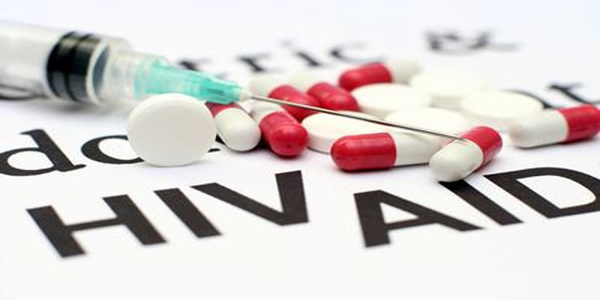AIDS Could Be Cured By 2030

Your Daily Blend of Entertainment News
You are now subscribed
Your newsletter sign-up was successful
The most devastating illnesses are the ones that have no cure or limited treatment. Just this past year, my sister's best friend of over fifteen years passed away from catching a simple cold because of his advanced AIDS infection. Since the virus began spreading in humans, it has been a global epidemic with no end in sight. A recent study, however, hopes that in the not so distant future, we as a species will finally put a stop to it.
According to New Vision , the United Nations believes AIDS could be eradicated by 2030. For those of you in your mid 20s, that means by your late 50s you could see this horrific disease wiped out. Worldwide, the number of new infections has decreased by a third since 2004 when the pandemic was at its highest rate. That year, 2.4 million people passed away due to the disease, but last year 1.5 million people died. The next five years will determine the next fifteen years, according to Michel Sidibie, head of UNAIDS. More research, studies and medication are crucial to finding a cure.
Unfortunately with nearly 35 million infected with HIV that have no clue they're sick, we haven't won the war just yet. And nearly 19 million people have AIDS , the advanced form of HIV, and don't know they have it, too. The bulk of the new infections come from countries in Africa, such as Uganda and Nigeria. However many countries, including the United States, have high rates as well. Here in the states, Black women, Hispanic people and gay men are most at risk for getting sick. Sidibe also wants efforts ramped up to help those who use drugs and in prison keep from getting sick.
A big factor in many of these groups falling ill, particularly in Africa, is discrimination. Earlier this year, Nigeria passed a law which criminalizes being gay . While this is not only a horrific blow to basic human rights, it also has had an impact on those seeking treatment for HIV or AIDS. People live in fear of being sent to jail or even killed, and seeking treatment may target them whether they are gay or not. There is a similar situation playing out in Uganda, and not surprisingly in Russia where stigmatization against gay people or those who use drugs is huge.
While the UN and its leaders are optimistic about giving AIDS the permanent boot, others are more skeptical. Marcus Low, the spokesman for South Africa's Treatment Action Campaign, who seeks to educate people on AIDS and HIV says that they are much more cautious in hoping for a cure. The organization wants more focus on helping those who are sick now and not making sweeping statements about the future. In South Africa, 1,000 new cases are diagnosed every single day and it is a daily struggle to help those who are sick.
While the optimism is great, and I hope the future is bright for world wide health, it's obvious that there is a huge crisis going on in the present. More people need access to medications and other treatments, and more research needs to be organized. I do hope, however, for anyone struggling with AIDS or HIV today to lead a long healthy life. Hopefully, someday AIDS is just something written about in history books.
Your Daily Blend of Entertainment News
